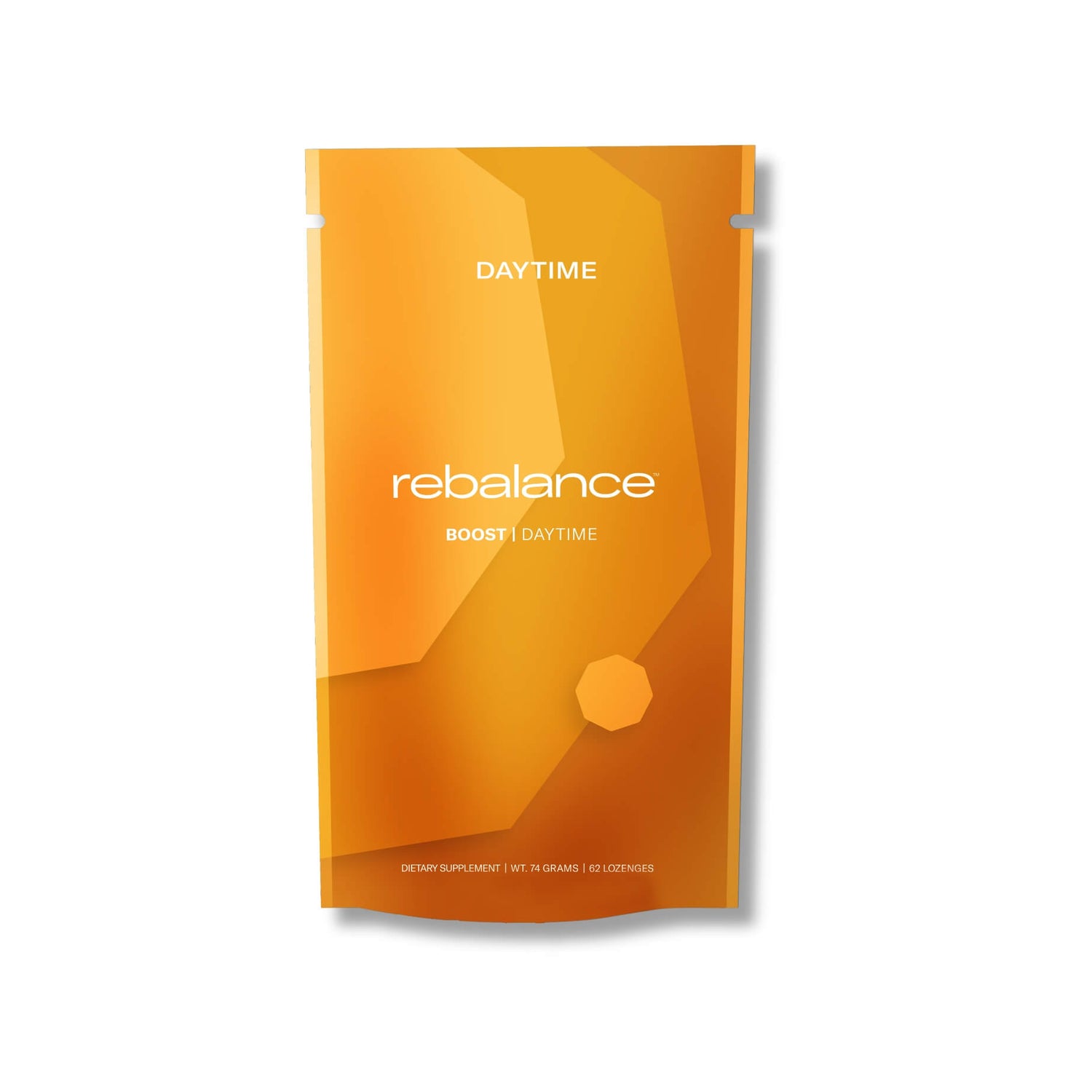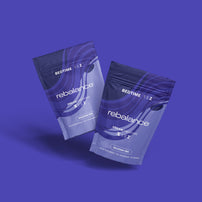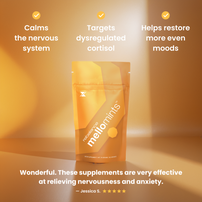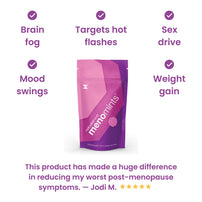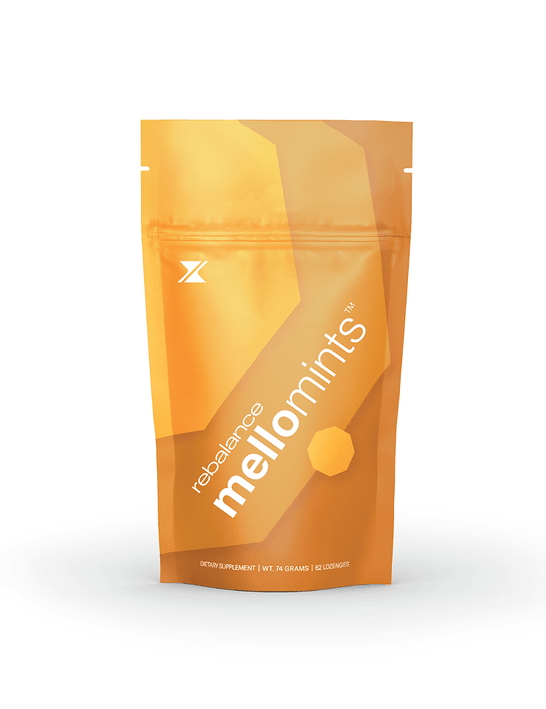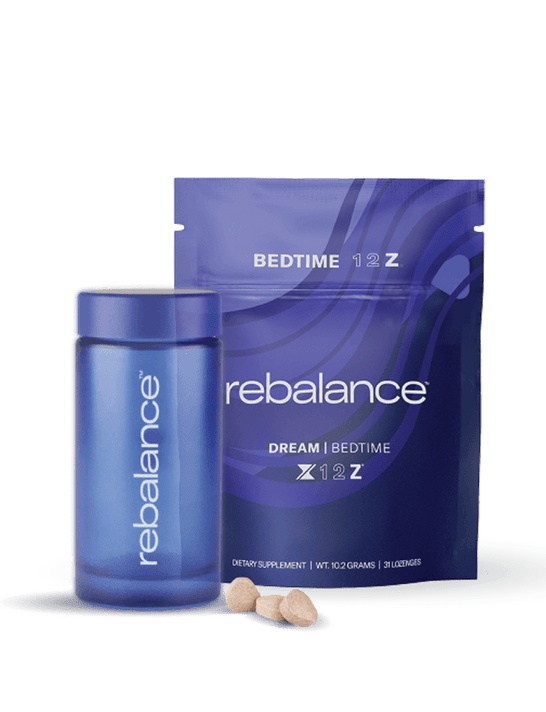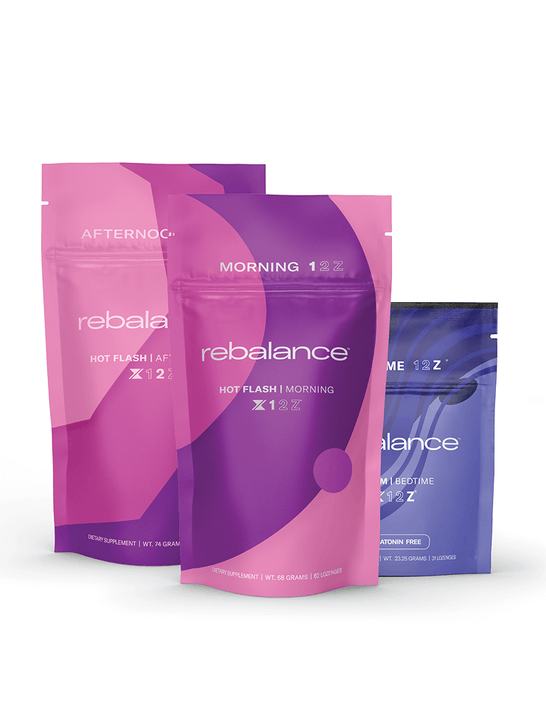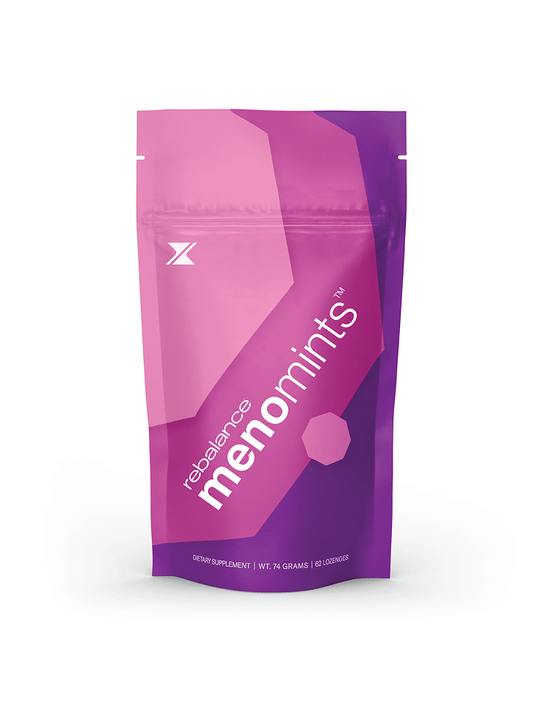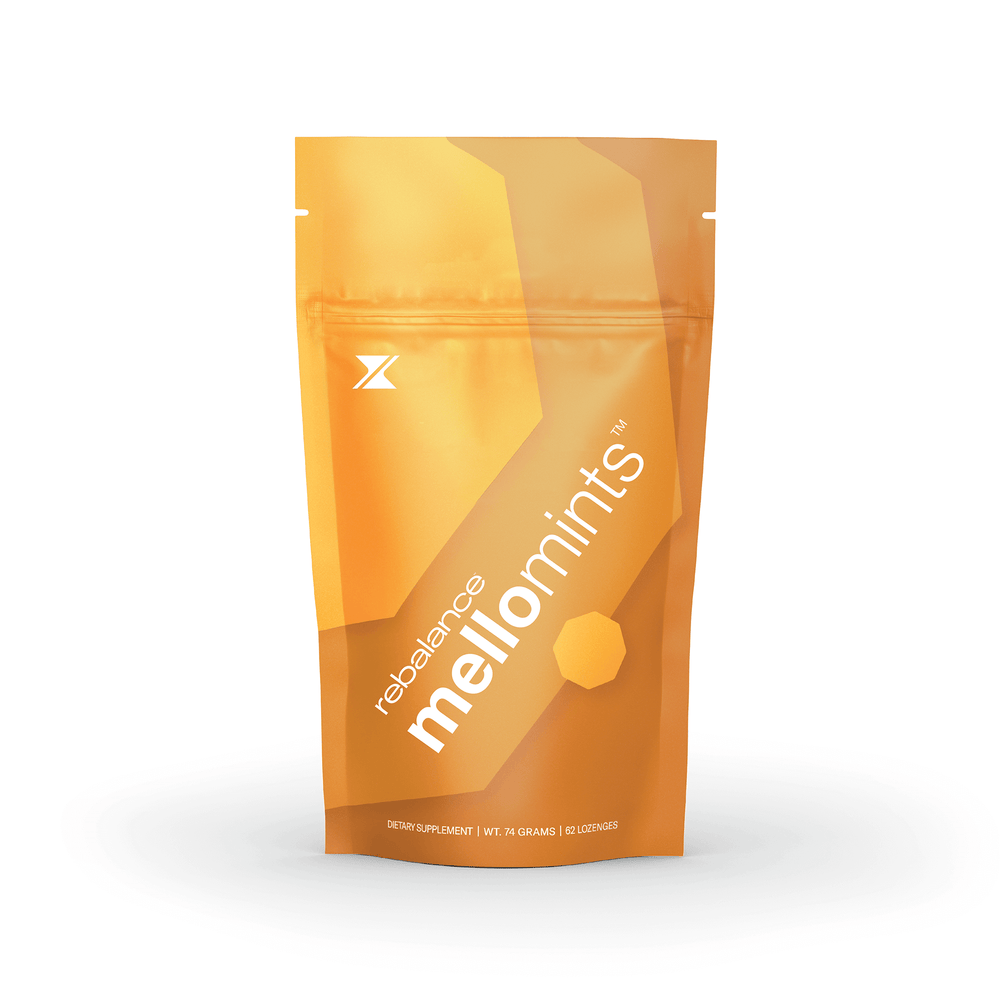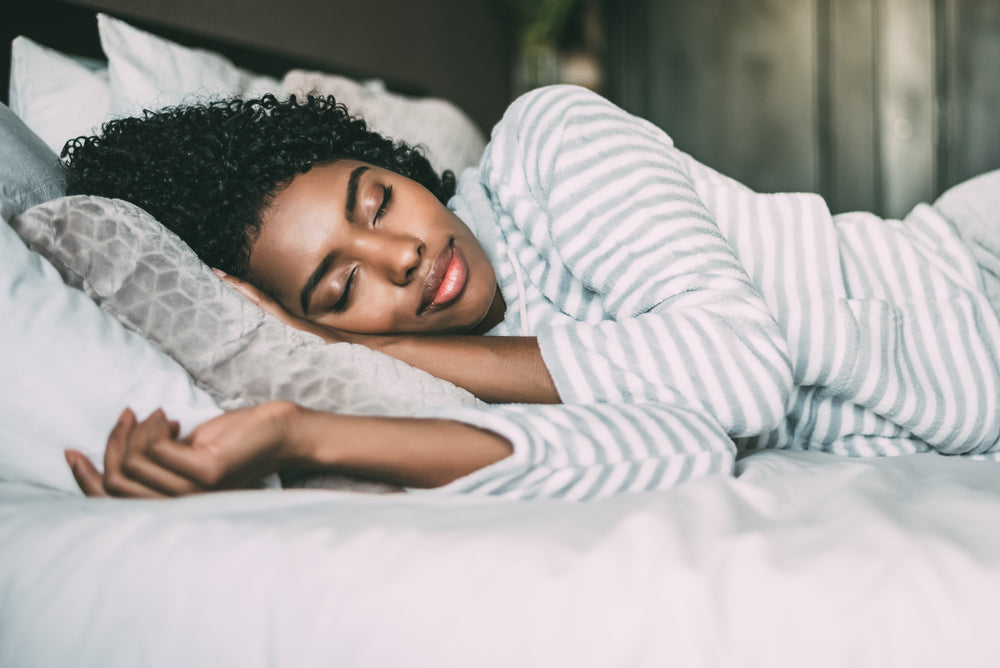Finding Your Fire: Overcoming Low Energy in Men
06/10/2024 by Rebalance Health

Feeling like your get-up-and-go has gotten up and left? You’re not alone. Many men, particularly as they age, find their energy levels waning. While this problem may be inevitable for some men, it’s not unsolvable. We understand how unpleasant it is to navigate life and all its obstacles when you’re feeling worn out, so we’re going to shed light on the symptoms and causes of low energy in men and offer practical solutions to help you reclaim your gusto.
Recognizing the Symptoms of Low Energy
The first step in treating a condition is recognizing the symptoms. Here are some common symptoms of low energy in males:
Persistent Fatigue
Persistent fatigue is a common symptom that many men experience, affecting their daily activities and overall mood.
Lack of Motivation
Ever find yourself staring blankly at your to-do list, unable to muster the enthusiasm to get started? A lack of motivation often accompanies low energy, making even simple tasks feel like monumental challenges.
Difficulty Concentrating
Low energy can also manifest as brain fog. It may even make you feel like you’ve suddenly developed ADHD with your attention running all over the place like a squirrel that’s had one too many espressos. The question is, why are you experiencing these symptoms in the first place?
Reasons for Low Energy in Men
As with most health conditions, there can be a plethora of reasons why you’re always feeling depleted. Keep in mind that it’s possible that more than one of these reasons can be the culprit for low energy in men. Here are some potential causes for fatigue in men:
Low Testosterone
You may be wondering, what happens when a man’s testosterone is low? Well, testosterone is a key hormone in men, influencing everything from muscle mass to mood. As men age, testosterone levels naturally decline, which can unfortunately lead to decreased energy levels.
Testosterone plays a pivotal role in maintaining energy levels, fat distribution, and red blood cell production. Red blood cell production may not seem like a big deal, but your red blood cells carry oxygen throughout your body. A lack of red blood cells will result in lower oxygen levels, which can make you feel exhausted.
And exhaustion can lead to your willpower plummeting, taking all your healthy habits with it. This could look like skipping the gym in favor of Netflix and some Chipotle. Now, some downtime and treats aren’t a sin, but when this becomes the norm, your diet suffers and, subsequently, so does your body.
The result is that your diet and exercise regimen gets thrown by the wayside and your energy levels drop even more. As you can see, something as simple as reduced oxygen can cause a ripple effect, eventually leading to persistent fatigue.
Poor Sleep Quality and Quantity
Quality sleep is essential for recharging your body and mind. And it’s not just about how much sleep you get, but how restorative that sleep is. Interrupted sleep cycles prevent your body from reaching the deep, restorative stages necessary for rejuvenation. During sleep, your body produces many of the key hormones you need to feel good the next day.
So in theory, you could be going to bed at a reasonable hour, allowing yourself to get eight hours of sleep, but if you’re waking throughout the night, you may not be entering your deeper sleep phases which is where the restorative magic happens.
Poor Dietary Choices
What you eat directly impacts your energy levels. If you’re deficient in key nutrients such as iron, vitamin D, and B vitamins, you’re more likely to experience fatigue as these nutrients play crucial roles in energy metabolism and overall health. But it’s not just nutrient deficiencies that can leave you feeling deflated. Eating too little can also cause feelings of low energy because you’re not getting enough calories to sustain your body throughout the day.
Of course, you also need to keep in mind the macronutrient breakdown of your meals also plays a crucial role in your energy levels. Carb-heavy meals with very little protein and fats will most likely cause an energy slump and cause more cravings later on.
Depression
Low energy and depression often go hand in hand. Symptoms of depression include persistent sadness, loss of interest in activities, and changes in appetite and sleep patterns. These symptoms can exacerbate feelings of fatigue and low energy. If you suspect you’re dealing with depression, seeking help from a mental health professional is important.
Various Health Conditions
Aside from poor diet, low testosterone, depression, and poor quality sleep, chronic health conditions can also sap your energy. Here are some common chronic conditions that can cause low energy:
- Thyroid Disorders
- Chronic Fatigue Syndrome
- Heart conditions
- Anemia
- Diabetes
- Sleep apnea
- Fibromyalgia
If you’ve been diagnosed with any of these conditions and you’re experiencing fatigue, or your fatigue is getting worse, it’s important to consult with your doctor to see how you can manage your condition more effectively.
How to Increase Energy Levels Naturally
Hopefully, by now you have a good idea what’s causing your low energy. Now it’s time to learn how you can get your energy back naturally.
Nourish and Hydrate
The first step is to improve your diet. Improving your diet can have a profound impact on your energy levels. You’ll want to include nutrient-dense foods that provide sustained energy and ensure that you get plenty of protein and good quality fats with every meal.
Staying hydrated is often overlooked but crucial for maintaining energy. Dehydration can lead to feelings of lethargy and decreased cognitive function, so aim to drink at least eight glasses of water a day.
Get A Solid Exercise Routine Going
Next, you’ll need to get your body moving. Physical activity is a natural energy booster because it increases endorphin levels and helps you sleep better. In fact, studies show exercise is associated with meaningful improvements in energy, vitality, and fatigue.
Choose activities you enjoy, whether it’s swimming, cycling, or a brisk walk. Regularly engaging in physical activity increases overall energy levels and promotes a healthier lifestyle. If you’re extremely fatigued, start slow with a relaxed walk a few times a week.
Balance Your Cortisol
Typically, you’d be told to lower your cortisol because it’s disrupting your sleep cycle and causing fatigue. And technically, this advice is correct. Having elevated cortisol levels forces your circadian rhythm out of wack, which makes it harder to fall and stay asleep, causing low energy.
However, telling you to lower your cortisol is incomplete advice. That’s because it’s possible that you may have low cortisol levels. Although this may sound like a dream come true, low cortisol levels are just as problematic as high cortisol levels.
Low cortisol can contribute to low energy because cortisol also helps to wake you in the mornings and helps to facilitate energy production throughout the day. So low levels of cortisol can contribute to fatigue, and even low blood pressure.
In fact, some studies show patients who have Chronic fatigue Syndrome have a lower cortisol response when waking than healthy people.
Of course, imbalanced cortisol levels can also affect your ability to produce adequate testosterone. Most of your testosterone is produced in your testicles, but in order for your testes to produce testosterone, you need luteinizing hormone (LH).
Unfortunately, too much cortisol inhibits the production of LH, which then affects the production of testosterone. Naturally, the combination of low testosterone and imbalanced cortisol is a crucible for incessant fatigue.
As you can see, too much cortisol disrupts testosterone production and your sleep cycle and too little cortisol affects your energy production. What you really need is to balance your cortisol levels. Not too high, not too low. You want cortisol levels that are just right. So how do you solve this Goldilocks conundrum?
You need to get your circadian rhythm right.
Our hormones, specifically cortisol, melatonin, and human growth hormone (hGh), run on a specific schedule. Your day is supposed to start off with higher cortisol levels (to help wake you up), gradually reduce throughout the day, and by late afternoon, your melatonin has to start its shift. Then during the night, as you enter your deep sleep stages, your hGH is meant to make an appearance.
Here are some practical things you can do to get your circadian rhythm back on track:
- Maintain a proper sleep schedule, meaning go to sleep and wake up at the same time every day.
- Get some sunlight first thing in the morning. Sunlight early in the morning has been shown to improve sleep quality and duration, and move your sleeping hours forward.
- Avoid caffeine after 12pm. Caffeine can stay in your system for up to eight hours, so you’ll need to avoid caffeine in the latter part of the day.
- Start winding down an hour or two before bed. This includes avoiding rigorous activity, heavy meals, and devices with blue light.
If you’re still struggling to get your circadian rhythm right despite implementing these tips, then it may be time to whip out the big guns.
Our three-part lozenge systems, including our Testosterone System, work by helping to rev up your cortisol in the morning (when you actually need it), keeping it level throughout the day for sustained energy, and then introducing relaxing ingredients at night to help you drift off to a deep, blissful sleep.
By balancing your cortisol levels, you ensure that you have enough cortisol to keep you energized while keeping your sleep cycle aligned and testosterone production consistent.
Consult Your Doctor
If lifestyle changes aren’t enough to boost your energy, it’s essential to consult a healthcare professional as you may be experiencing an underlying health condition. A healthcare professional can help identify any underlying issues and recommend appropriate treatments.
Conclusion
Low energy in men is a common issue, but it’s not something you have to live with. By making some healthy lifestyle changes and incorporating a sleep support lozenge like DREAM or the complete Testosterone System, you can get your cortisol levels just right and start feeling like your vibrant self again.
Overview

Stay Calm. Sleep Deep. Wake Clear.
A lozenge that supports deep sleep, better REM, and calmer nights. Without melatonin — unless you want it.
